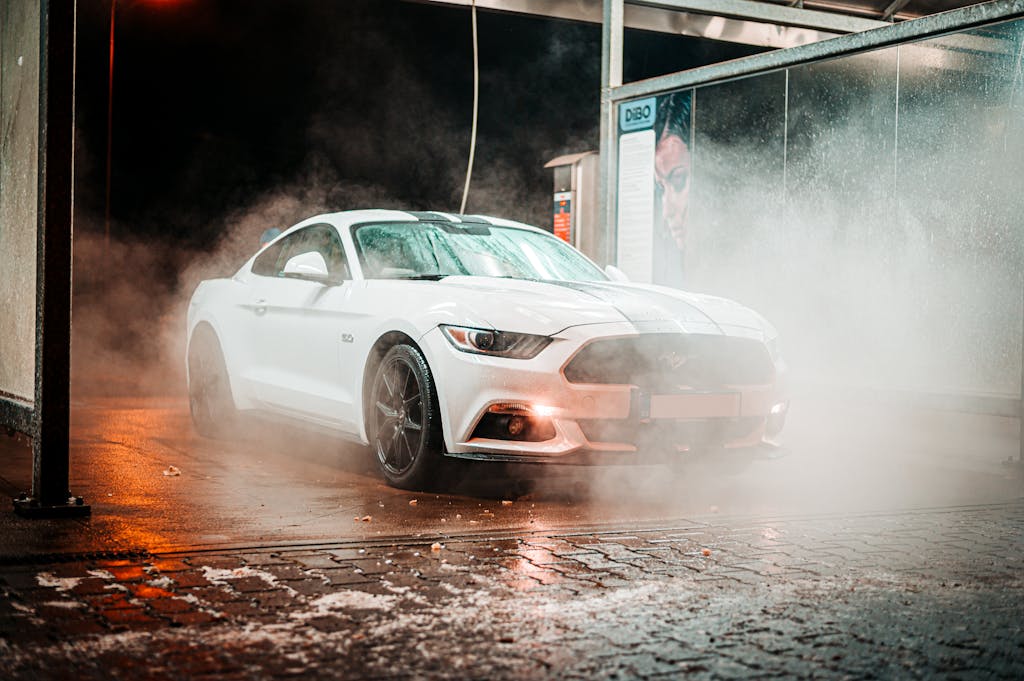What Car Brands Own What: Ultimate Guide to Auto Giants
Many car brands are owned by larger automotive groups. For example, Volkswagen Group owns brands like Audi, Porsche, and Lamborghini.
The automotive industry is a complex web of ownership and brand relationships. Understanding which car brands belong to which parent companies can help consumers make informed choices. Major brands often share technology, design, and resources, creating a diverse marketplace. This interconnectedness influences vehicle performance, reliability, and pricing.
Consumers may prefer certain brands based on reputation, luxury, or budget. By exploring brand ownership, buyers can discover hidden gems and better align their preferences. This guide aims to clarify the ownership landscape, highlighting key brands and their parent companies for a clearer perspective on the automotive world.
Introduction To Auto Industry Dynamics
The auto industry is a complex world. Understanding brand ownership is key to grasping it. Different companies own various car brands. This ownership impacts how cars are made and marketed.
Consolidation in the auto industry shapes the market in many ways. Larger companies often buy smaller ones. This creates fewer brands but often offers better cars. Consumers may benefit from improved technology and lower prices.
Brand ownership also affects consumer choice. With fewer brands, options may seem limited. Yet, many brands share the same technology under different names. This can confuse buyers but also helps in making informed choices.
Historical Perspectives On Brand Acquisitions
The automotive industry has seen many mergers and acquisitions throughout its history. Early on, companies joined forces to expand their reach and reduce costs. Famous examples include Chrysler merging with Daimler-Benz in 1998. This was one of the biggest deals of its time.
Another notable acquisition was General Motors buying Buick in the early 1900s. This helped GM grow quickly. Ford Motor Company also acquired Lincoln in 1922, enhancing its luxury offerings. These actions shaped the industry and created iconic brands.
| Year | Acquisition | Companies Involved |
|---|---|---|
| 1998 | DaimlerChrysler Merger | Chrysler & Daimler-Benz |
| 1908 | GM Buys Buick | General Motors & Buick |
| 1922 | Ford Acquires Lincoln | Ford & Lincoln |
The Big Players In Today’s Auto World
The auto industry has several major players. They own many well-known brands. Here are some top auto giants and their portfolios:
| Parent Company | Brands Owned |
|---|---|
| Volkswagen Group | Volkswagen, Audi, Porsche, Skoda, Bentley |
| Toyota Motor Corporation | Toyota, Lexus, Scion |
| General Motors | Chevrolet, GMC, Cadillac, Buick |
| Ford Motor Company | Ford, Lincoln |
| Hyundai Motor Group | Hyundai, Kia, Genesis |
Market shares vary among these companies. Volkswagen and Toyota often lead the market. General Motors remains a strong contender in North America.
Breaking Down Brand Families
The Volkswagen Group is a major player in the automotive industry. It owns several well-known brands. These include Volkswagen, Audi, Porsche, Bentley, and Lamborghini. This diverse portfolio helps the group reach many markets.
General Motors has a strong global presence as well. It owns Chevrolet, GMC, Buick, and Cadillac. These brands cater to different customer needs and preferences. GM also invests in electric vehicle technology, aiming for a greener future.
Luxury And Performance Subsidiaries
Many luxury brands belong to larger car groups. These brands often share technology and resources. For example, Audi is part of the Volkswagen Group. This allows Audi to access advanced engineering and design features.
BMW owns several performance brands, including Mini and Rolls-Royce. Each brand has its own identity but benefits from BMW’s innovation. Mercedes-Benz also has AMG, its high-performance division, focusing on speed and luxury.
| Brand | Parent Company |
|---|---|
| Audi | Volkswagen Group |
| BMW | BMW Group |
| Mini | BMW Group |
| Rolls-Royce | BMW Group |
| AMG | Mercedes-Benz |
Strategic Alliances And Joint Ventures
Strategic alliances</strong and joint ventures greatly influence the car industry. These partnerships allow brands to share resources and knowledge. As a result, they create better products and services.
Collaborations lead to innovative technologies. They help companies save costs and improve efficiency. Consumers benefit from enhanced features and lower prices.
These alliances also affect consumer choices. Buyers often prefer brands that offer unique features. Trust in a brand can grow through successful collaborations.
Some key examples include:
| Brand A | Partner Brand B | Focus Area |
|---|---|---|
| Ford | Volkswagen | Electric Vehicles |
| Toyota | BMW | Hydrogen Fuel Cells |
| Renault | Nissan | Shared Platforms |
The Role Of Acquisitions In Auto Innovation
Acquisitions play a key role in driving automotive advancements. They enable technology sharing among various brands. This sharing leads to innovation and improved vehicle features.
For example, Volkswagen owns several brands. These include Audi, Porsche, and Lamborghini. Each brand benefits from shared research and development. This helps create better safety features and fuel efficiency.
Toyota and Mazda have also collaborated. They share knowledge about electric vehicles and hybrid technology. Such partnerships lead to cutting-edge automotive solutions.
Overall, brand acquisitions foster a culture of innovation. This ultimately benefits consumers with better products and services.
Future Trends In Auto Brand Ownership
The auto industry is changing fast. Mergers will reshape brand ownership soon. Companies want to join forces. This can lead to stronger brands.
Electric vehicles (EVs) are a big part of these plans. Many brands focus on EV technology. This shift helps them attract new customers.
Some predictions for upcoming mergers include:
| Brand 1 | Brand 2 | Reason |
|---|---|---|
| Ford | Volkswagen | Shared EV tech development |
| General Motors | Honda | Improved sustainability efforts |
| Tesla | Rivian | Combining innovative designs |
As brands merge, strategies will change. Focus on sustainability and technology will grow. Consumers will benefit from better options.
Navigating Brand Identities
Brand uniqueness is vital for companies. It helps them stand out in a crowded market. Consumers often feel loyalty to specific brands. This loyalty can be influenced by various factors.
Many companies own multiple brands. This can create a complex relationship with consumers. Each brand must maintain its own identity. Clear communication is key to avoid confusion.
Understanding consumer perception is essential. Brands must know how customers view them. A strong brand image can lead to increased sales. Companies should focus on building trust and quality.
Here are some key points:
- Brand loyalty influences buying decisions.
- Unique identities help avoid confusion.
- Clear messaging builds trust.
- Quality products enhance brand perception.
The Global Impact Of Auto Giants
The economic implications of brand ownership are vast. Large auto companies control many smaller brands. This leads to job creation and investment in local economies. Global brands also influence supply chains, affecting prices and availability.
Multinational car brands have a significant cultural influence. They shape consumer preferences around the world. Popular brands often become symbols of status and lifestyle. Local traditions may blend with global marketing strategies. This creates unique cultural exchanges that benefit both sides.
Frequently Asked Questions
Which Car Brands Are Owned By Volkswagen?
Volkswagen owns several well-known brands, including Audi, Porsche, Bentley, Bugatti, Lamborghini, and SEAT. This diverse portfolio allows Volkswagen to cater to various market segments, from luxury to performance vehicles. Each brand retains its identity while benefiting from the parent company’s resources and technology.
What Companies Does Toyota Own?
Toyota owns several brands, including Lexus, Scion, and the majority stake in Daihatsu. Lexus focuses on luxury vehicles, while Scion was aimed at younger buyers. By owning these brands, Toyota can target different consumer demographics and enhance its global market presence.
Who Owns Ford Motor Company?
Ford Motor Company is publicly traded, with shares owned by individual and institutional investors. The Ford family retains significant influence through special voting shares. This structure allows the company to stay true to its founding principles while expanding its global operations.
Is Hyundai Owned By Another Company?
Hyundai operates as part of the Hyundai Motor Group, which also owns Kia Motors. This group allows for shared technology and resources, improving efficiency and innovation. Both brands maintain distinct identities while benefiting from the group’s extensive research and development efforts.
Conclusion
Understanding car brand ownership is essential for making informed choices. It reveals the connections between brands and their parent companies. This knowledge can influence your purchasing decisions and enhance your overall experience. Stay informed about these relationships to navigate the automotive market with confidence and clarity.
Your next car could be linked to a brand you admire!





